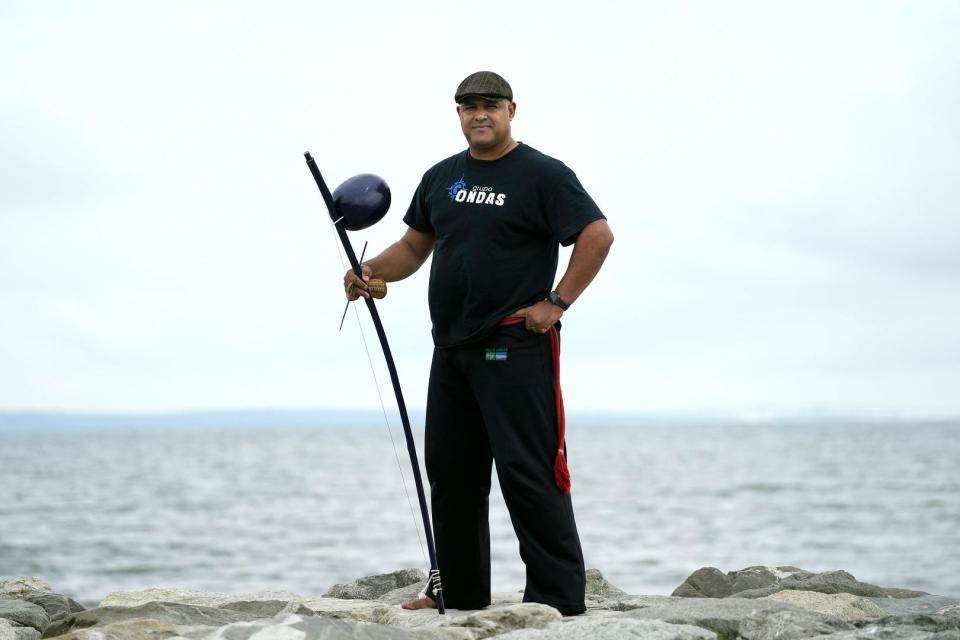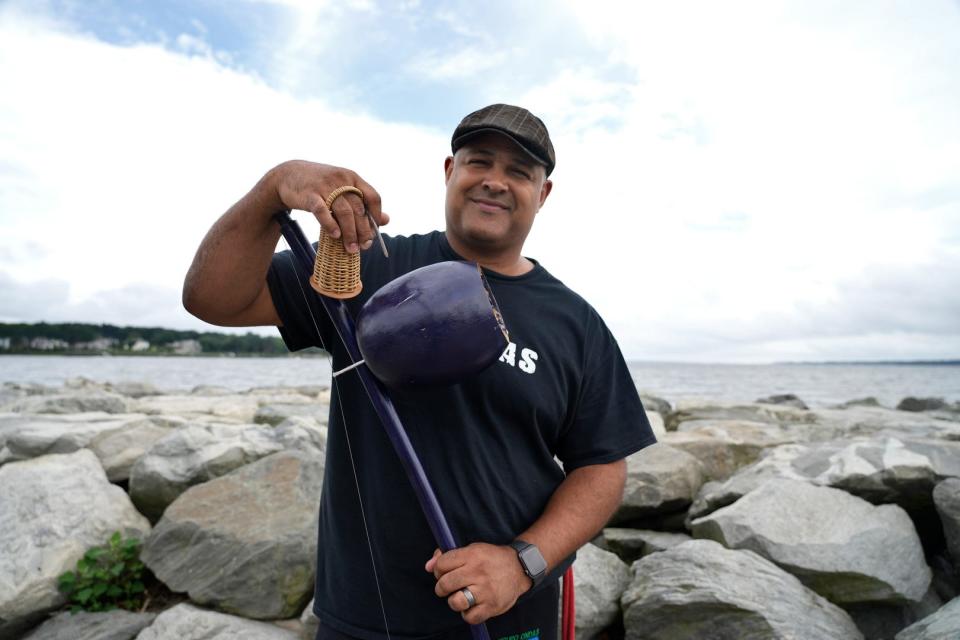'Cosmic connection': Singing, dance, martial arts to honor Africans lost in slave trade
On Friday night, a "cosmic connection" will be made on Warwick's Oakland Beach.
That's how Silas Pinto described the scene, which will be transformed into a memorial to Africans who perished in the transatlantic slave trade. Through a ritualistic series of performative arts, Rhode Islanders will honor lives lost.
But not only those in Rhode Island will gather. Pinto, Providence's first-ever director of Diversity, Equity, Inclusion and Belonging, has reached out to contacts in Cape Verde and Brazil, who will take part from afar.
Pinto's municipal post is not the only hat he wears. He also teaches Capoeira, which will be on display on the shore that night.
Joshua Amarelo, who owns a Fall River gym called AMP Academy, which teaches the art, describes it as "an Afro-Brazilian martial art that incorporates music, dancing, acrobatics and self defense."

It originated centuries ago with Africans enslaved in Brazil who combined creativity and a bit of trickery to develop their craft.
"The slave masters wouldn’t allow them to train [in] any kind of martial art, but they would allow them to … practice their religious ritual or their cultural rituals," explained Amarelo, who will be part of the ceremony on the beach. "So what the enslaved people did is they pretended they were doing dance and religious rituals, and they were actually practicing … what became known as Capoeira."
More: On Juneteenth, North Kingstown's historic Casey Farm marks its ties to slavery
With help from his friends abroad participating in the evening's events, Pinto said they'll be "lining the coast of the Atlantic Ocean together around the same time and we’re playing and reflecting at the same time."
Participants will also engage in a sonoras — a form of singing that will emit sound waves across the water to honor the dead.

Pinto's partner, Nicole, a Capoeira instructor with Grupo Ondas, which will be performing, noted that unlike other forms of combat, the art does not often use the hands.
"That’s because back then they were shackled with the feet and the hands," she said. "However, their hands were for building, and the feet were for destroying, so that’s one of the reasons why the art has more kicks than strikes."
Those movements take the form of a language.
“If I throw a kick, that’s my question to you," Nicole said. "And then your response is the way you move with the kick, whether you do an acrobatic movement, or a dodge or if it's a fighting game, you might come in and try to sweep my leg out from under me."
For those interested in seeing it all play out, Pinto has some advice: Pay attention.
"The idea behind it is that that becomes our little world for a little while, and everything behind us just has to wait until we turn around and face them because we want people to be fully present in those moments."
The Oakland Beach event takes place Friday from 6 to 7 p.m. and is open to the public. Attendees can see more Capoeira at the next WaterFire lighting on Saturday from 6 to 10 p.m.
This article originally appeared on The Providence Journal: Oakland Beach event will honor Africans lost in the slave trade

